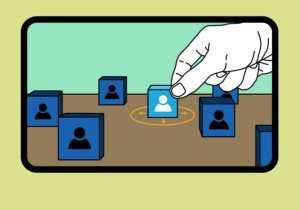How to Improve Your Soft Skills in a Remote Environment
You have probably heard this saying before: Hard Skills Get You Hired, But Soft Skills Get You Promoted. Though one might think that the technology and the needed skill sets to improve one’s resume make this saying obsolete, it still holds up quite well. This applies not only to being a Virtual or Distant Assistant but to other fields of work as well.
Businesses are now using “soft skills” as the key differentiator when deciding who they would like to promote to higher positions in their company. According to LinkedIn’s Global Talent Trends report, more than 90% of HR professionals reported that soft skills are equally or more important traits to hire for than hard skills. They also added that if a new hire doesn’t work out, 9 times out of 10 it’s because they lack the soft skills to handle the situation.
What are Soft Skills, exactly?

Soft skills can be defined as a collection and combination of people, communication, and social skills, as well as certain personality traits that help employees adapt to their work environment and perform well with others in their company or team.
But because soft skills aren’t exactly quantifiable attributes that you can score on paper, it can be difficult for HR or talent acquisition specialists to assess potential hires, given their short time together in the hiring process. Though some tell-tale signs can help them avoid red flags, it’s often when the new hire starts their job that one can observe their soft skills or lack thereof.
Soft Skills are very in-demand
Soft skills in the workplace have grown in value for companies, particularly those in the service industry. According to a certain study, hiring specialists say that soft skills are essential in deciding who to hire. Also, business owners believe that soft skills are more important than tech skills since the former is harder to train or develop over time over the latter.
It also serves as an important benchmark when it comes to promoting someone for team leading or managerial positions. Given the option, most CEOS would hire someone with great soft skills over someone who might have better tech skills but have mediocre soft skills.
Soft Skills to Nurture
That said, here are some soft skills to look out for when hiring for your remote team.
Communication
Communication doesn’t just mean being an eloquent talker or having a good accent and tone. It is a two-way street, which means one needs to develop good listening skills as well. Learn how to listen without interrupting the person you are speaking to. It now only shows respect to who you are talking to, but you also get the whole information and context before you reply.
Body language is also an important part of communication. While one might say that they are paying attention to someone, the other person might not get the same sentiment if their body language seems like they are not focused, or tinkering with something else at the moment.
Teamwork and Conflict Resolution

While working as a team, sometimes it can be easy to view other people as rivals for promotion, rather than people one can work with to achieve a goal. This could lead to poor teamwork in the team and everyone just keeping to themselves and not sharing information.
Another issue with being individualistic rather than working as a cohesive team is when conflict arises, arguments and accusations start hindering productivity.
Opening lines of communication, as well as showing teammates that one is open to collaboration can help foster teamwork and avoid escalating conflict within the team. As the team starts cooperating and improving as a whole, everyone will end up rising as a group, rather than dragging each other down.
Compassion and Emotional Intelligence
One way to foster camaraderie, or create bonds in the workplace is to show compassion and empathy to teammates or clients. Taking an interest in other people and seeing things from their perspective can help one understand their struggles means they can assist or find the best way to work with the situation.
Being able to take a step back and not act upon impulse is also a good way to train one’s emotional intelligence. Having a higher EQ means you can calmly assess situations and think of solutions, rather than just having knee-jerk reactions or doing short-term solutions for issues or conflicts.
Work Ethic and Time Management
Work Ethic could apply to a lot of things, but it could be boiled down to four key points:
- Take responsibility for one’s work
- Always show up and deliver on time
- Always keep one’s commitments
- Never blame others for one’s shortcomings
In relation to this, being able to properly manage your time is an essential soft skill in order to deliver your commitments and show that you can handle your responsibilities well, and are prepared to take on new ones.

Learn to prioritize and allocate the proper time for each task and responsibility. You should also be able to gauge which task you are equipped to do or still have the capacity for. That way, you can maintain your efficiency, and learn your current limitations and how to exceed them eventually.
Conclusion
Soft skills can be harder to train than hard and technical skills, but it doesn’t mean it’s impossible. Being exposed to situations that let a person practice their soft skills is the best way to gain experience in the matter, so don’t be afraid to dive in headfirst into different situations and scenarios at work.
Bottleneck Academy offers free training to those who are aspiring to pursue a career in being a Distant Assistant. They do roleplays to simulate situations in the office or with clients, so you know what to expect and how to respond when a situation arises. Interested? Enroll now, as there are only limited slots available!
Subscribe to our newsletter so you can receive up-to-date information about other tips on how our distant assistants can help entrepreneurs grow their businesses. You also get FREE access to our Ultimate Distant Assistant Checklist when you sign up.
About Jaime Jay
Meet Jaime Jay – a man who wears many hats, and wears them all admirably. He's a master connector, an entrepreneur extraordinaire, and a published author who knows how to get things done.
Before he found his way to the business world, Jaime served his country as a brave paratrooper in the U.S. Army. But that's just the beginning of his many accomplishments.
He's the founder of the renowned Bottleneck Distant Assistant Services firm, and his book "Quit Repeating Yourself" has become a must-read for entrepreneurs everywhere.
When he's not busy building his empire, you can find him on his beloved Harley Davidson, cruising through the countryside and taking in the invigorating effects of Uitwaaien – a Dutch practice that involves facing the wind to boost health and relieve stress.
He enjoys spending his free time outside building stuff with his wife, Nikita the dog and their two kittens (for now at least) Tommy and Tater.
He is ‘over-the-moon’ happily married to his wonderful wife Sara, his amazing daughter, Jessica, who is serving our country as a United States Army soldier. Jaime and Sara are the proud grand parents of two beautiful little girls.

Get Your Book Now!
Quit Repeating Yourself provides guidance for entrepreneurs, business leaders, and managers to help prevent unknown challenges from ruining their business.


















